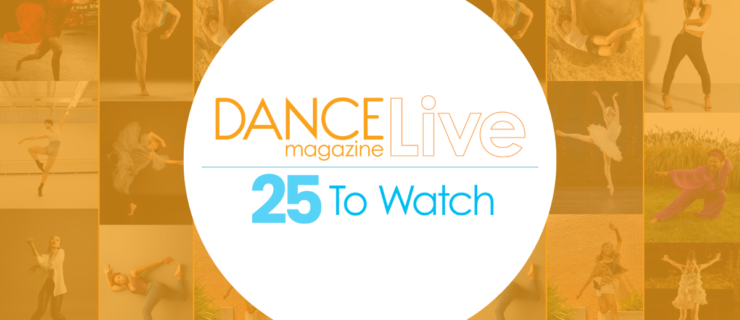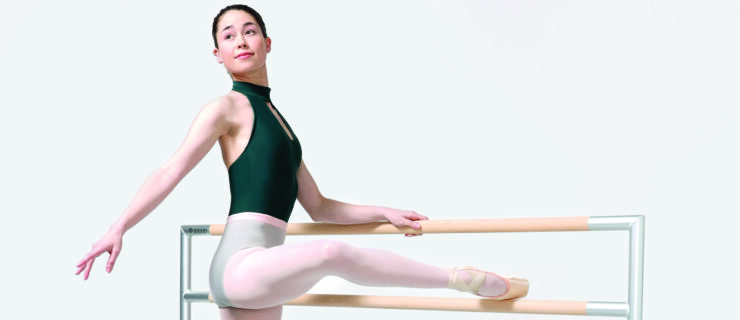When and How to Speak Up for Yourself in the Studio
Picture this: You’re in rehearsal, and you finally get a move the way the choreographer wants it—except that it makes your back twinge each time. Should you say you’re in pain, or should you suck it up and keep going? You don’t want to injure yourself, but you also don’t want to jeopardize your role.
The dance world often teaches students to be quiet and obedient around authority figures. That said, there are definitely instances when you need to speak your mind. Try these tips to navigate sticky situations.
When to Speak Up
Expressing your feelings can be nerve-racking, especially if you’re worried you’ll face repercussions. The good news? Those consequences you’re anticipating might be all in your head. “Many dancers make assumptions about when they’re allowed to speak,” says Nadine Kaslow, a psychologist who works with dancers at Atlanta Ballet. “In fact, teachers want you to speak up in certain circumstances.”
Say something when you’re working with an injury, or when you feel one looming. Bullying and other inappropriate behavior—from students or teachers—also need to be brought to light. And while some would say dancers should leave non-dance problems outside the studio doors, it can be smart to let someone know when you’re dealing with rough stuff. “Whether it’s a bad breakup, a hard situation with parents, or another life issue, it helps me to have a heads-up,” says Kate Crews-Linsley, school artistic associate at Nashville Ballet. “If I see a bad mood in class, I want to know why. A quick conversation can help me coach you through it.”
What’s the common thread here? When your physical, mental, or emotional well-being is on the line, tell someone. Your teachers and choreographers can’t assist you unless they know what’s wrong.
How to Speak Up
To get the best response, consider the way in which you broach the subject. Keep your tone respectful, and try to be clear and concise as you describe the issue. Answer questions and, if you can, propose solutions. Fostering a conversation is generally more effective than launching into a confrontation.
Timing also matters. For instance, immediately before class is a great time to tell your teacher that something’s hurting. “Then I can keep an eye on you as you warm up,” Linsley says. “I can help you determine if this is something you can push through or if you need to take a day off to rest.” However, if your situation requires a more in-depth discussion, or if you’re liable to become emotional, Linsley recommends scheduling a private meeting.
Of course, there are times when you won’t be able to wait. Acute injuries while dancing would fall under this umbrella, but so might serious interpersonal conflicts. If teasing or arguing between dancers is stopping a rehearsal in its tracks, for example, you probably need someone to step in and mediate right away.
Telling Tough Truths
The most difficult topics to talk about can also be the most important. If you experience or hear about improper touching or physical or verbal abuse from someone in a position of power at your studio, tell a trusted adult as soon as possible. “If you’re being made to feel uncomfortable, or if you witness mistreatment of someone else, the sooner the problem is dealt with, the better,” Linsley stresses.
The same goes for peer bullying, which Linsley points out often happens where teachers can’t see it. “Honestly, no bad behavior is too small or silly to bring to us,” she says. “We can take appropriate action to put the fire out.”
If you’re embarrassed, anxious, or overwhelmed at the prospect of whistle-blowing, find an ally. Get a teacher or parent on board, or gather a group to speak up together. If it’s hard to verbalize what’s happening, write an email; speaking up doesn’t have to mean shouting in front of a crowd. Above all, if you’re not being taken seriously by the people in charge, it might be time to look for a new dance environment.
The Communication Habit
Finding your voice isn’t a one-time achievement. It’s a habit you develop through practice. Not sure where to start? Look for situations with low stakes. “You might ask for clarification about a step during class,” Kaslow says. “If that goes well, try speaking up about something bigger, to build confidence.”
The goal isn’t to complain about every little thing that bothers you. You’ll likely have a hierarchy of concerns, from scheduling conflicts to casting woes to aches and pains, and beyond. Kaslow says to pick your battles, keeping your health and safety at the forefront. Once you become used to a level of communication in the studio, you’ll be ready to use your voice when it matters most.
A version of this story appeared in the September 2018 issue of
Dance Spirit with the title “Finding Your Voice.”



